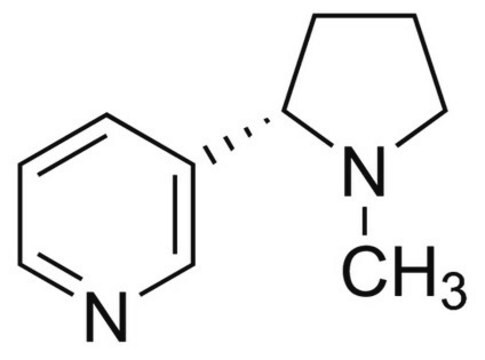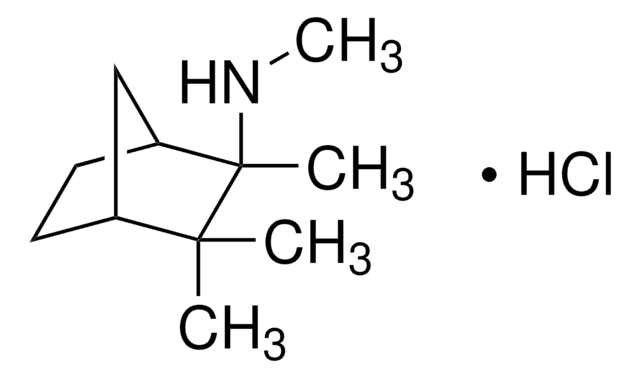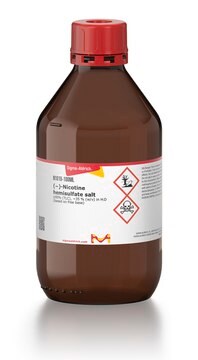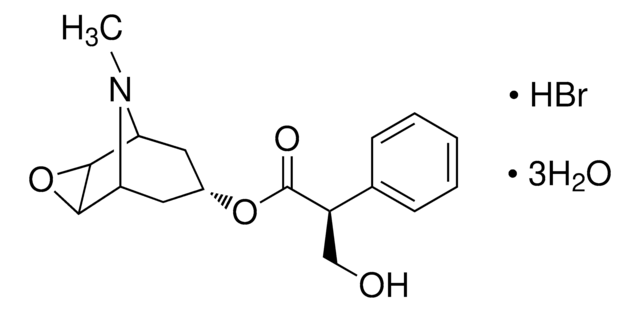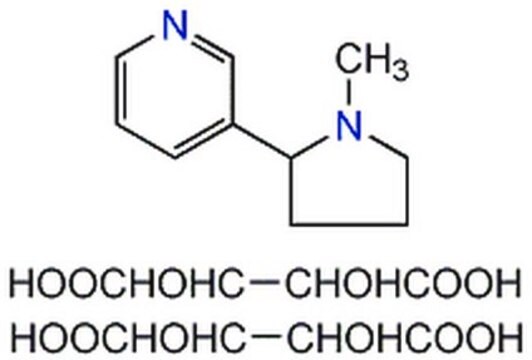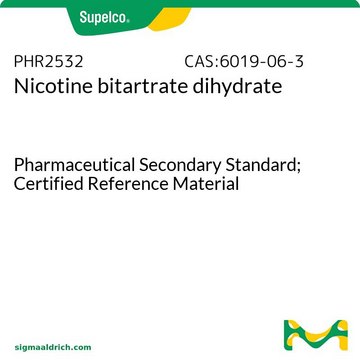SML1236
(−)-Nicotine hydrogen tartrate salt
≥98% (HPLC)
Synonym(s):
(−)-Nicotine ditartrate, (−)-1-Methyl-2-(3-pyridyl)pyrrolidine (+)-bitartrate salt
About This Item
Recommended Products
Quality Level
Assay
≥98% (HPLC)
form
powder
optical activity
[α]/D +20 to +26°, c = 1.0 in water
storage condition
desiccated
color
white to beige
solubility
H2O: 20 mg/mL, clear
storage temp.
room temp
SMILES string
CN1CCC[C@H]1C2=CC=CN=C2.C
InChI
1S/C10H14N2.CH4/c1-12-7-3-5-10(12)9-4-2-6-11-8-9;/h2,4,6,8,10H,3,5,7H2,1H3;1H4/t10-;/m0./s1
InChI key
RYYKFQGHMYGLEL-PPHPATTJSA-N
Looking for similar products? Visit Product Comparison Guide
Application
Biochem/physiol Actions
Signal Word
Danger
Hazard Statements
Precautionary Statements
Hazard Classifications
Acute Tox. 2 Inhalation - Acute Tox. 3 Oral - Aquatic Chronic 2 - Eye Irrit. 2 - Repr. 2
Storage Class Code
6.1A - Combustible acute toxic Cat. 1 and 2 / very toxic hazardous materials
WGK
WGK 2
Flash Point(F)
289.8 °F
Flash Point(C)
143.2 °C
Regulatory Listings
Regulatory Listings are mainly provided for chemical products. Only limited information can be provided here for non-chemical products. No entry means none of the components are listed. It is the user’s obligation to ensure the safe and legal use of the product.
PDSCL
Poisonous substance
JAN Code
SML1236-BULK:
SML1236-VAR:
SML1236-1G:4548173914961
SML1236-50MG:4548173914978
Certificates of Analysis (COA)
Search for Certificates of Analysis (COA) by entering the products Lot/Batch Number. Lot and Batch Numbers can be found on a product’s label following the words ‘Lot’ or ‘Batch’.
Already Own This Product?
Find documentation for the products that you have recently purchased in the Document Library.
Customers Also Viewed
Our team of scientists has experience in all areas of research including Life Science, Material Science, Chemical Synthesis, Chromatography, Analytical and many others.
Contact Technical Service

